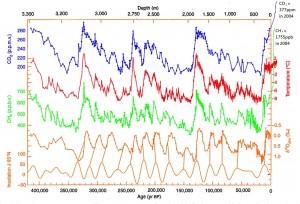As scorching temperatures sweep across China like an unrelenting wave,the nation finds itself at a critical intersection of climate challenge and human resilience. Thermometers are shattering past records, transforming landscapes into sweltering crucibles that test both technological infrastructure and human endurance. The electricity grid, already pushed to its limits, groans under the unprecedented heat, while citizens seek refuge from the merciless sun. This extreme weather event is more than just a meteorological anomaly—it’s a stark reminder of the growing climate pressures facing one of the world’s most populous countries. Unprecedented temperatures are pushing China’s power infrastructure to its limits, revealing vulnerabilities in the nation’s electrical system. Provinces across central and southwestern regions are experiencing prolonged heatwaves that have surpassed historical records, creating notable challenges for energy distribution and public health.
Sichuan Province has been notably impacted, with temperatures soaring above 40 degrees Celsius, forcing authorities to implement emergency electricity conservation measures. Industrial facilities have been instructed to reduce production, while residential areas face rolling blackouts to prevent total grid collapse.
The extreme weather conditions are straining hydroelectric power generation, a critical component of China’s renewable energy strategy. Reduced water levels in rivers and reservoirs have dramatically decreased electricity output,compelling energy managers to seek alternative generation methods.
Elderly populations and vulnerable communities are bearing the brunt of these environmental stressors. Healthcare facilities are reporting increased heat-related medical emergencies, including heat exhaustion, dehydration, and cardiovascular complications. Urban centers like Chongqing and Wuhan are experiencing heightened health risks due to concentrated urban heat island effects.
Economic implications are equally significant.Manufacturing sectors are experiencing disruptions, with factories operating under restricted capacities. Agricultural regions are witnessing potential crop failures, threatening food security and economic stability.
Climate experts suggest these extreme temperatures represent more than seasonal anomalies, indicating potential long-term climatic shifts. The current heatwave serves as a stark reminder of the urgent need for comprehensive climate adaptation strategies.
Power grid operators are exploring innovative solutions, including increased investment in solar infrastructure, energy storage technologies, and smart grid management systems. The current crisis is accelerating discussions about diversifying energy sources and enhancing grid resilience.
International climate research organizations are closely monitoring China’s response, viewing the situation as a potential blueprint for managing extreme weather scenarios in densely populated regions. The country’s approach to balancing energy demand, infrastructure limitations, and environmental challenges could provide valuable insights for global climate adaptation efforts.
Government agencies have initiated emergency protocols, establishing cooling centers, distributing water resources, and implementing public awareness campaigns about heat-related health risks.These measures aim to mitigate immediate human impact while developing long-term systemic responses.
As temperatures continue to challenge existing infrastructure, China finds itself at a critical juncture, balancing immediate survival needs with sustainable progress strategies. The ongoing heatwave represents more than a meteorological event—it is a complex intersection of environmental,technological,and social dynamics.









